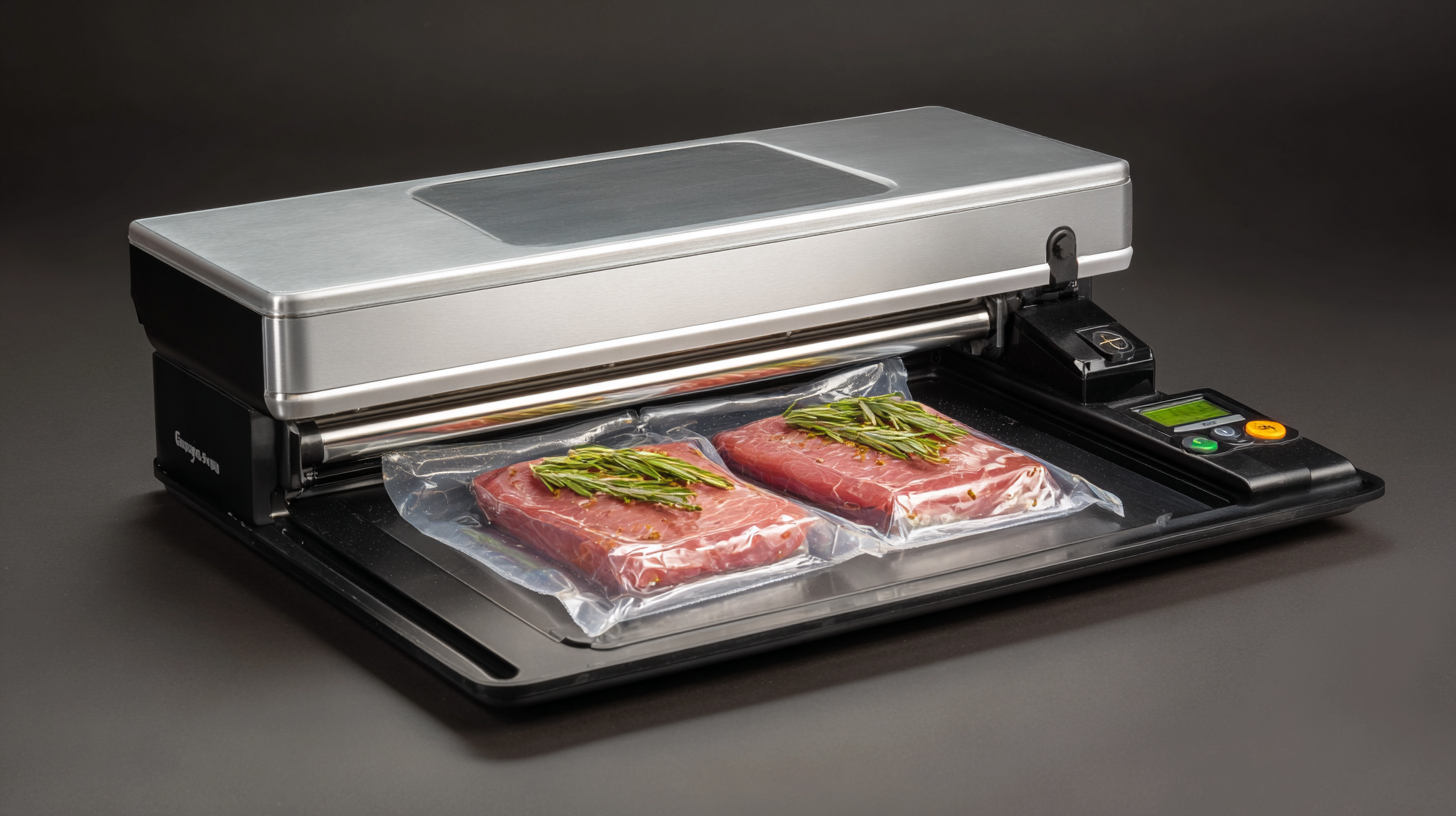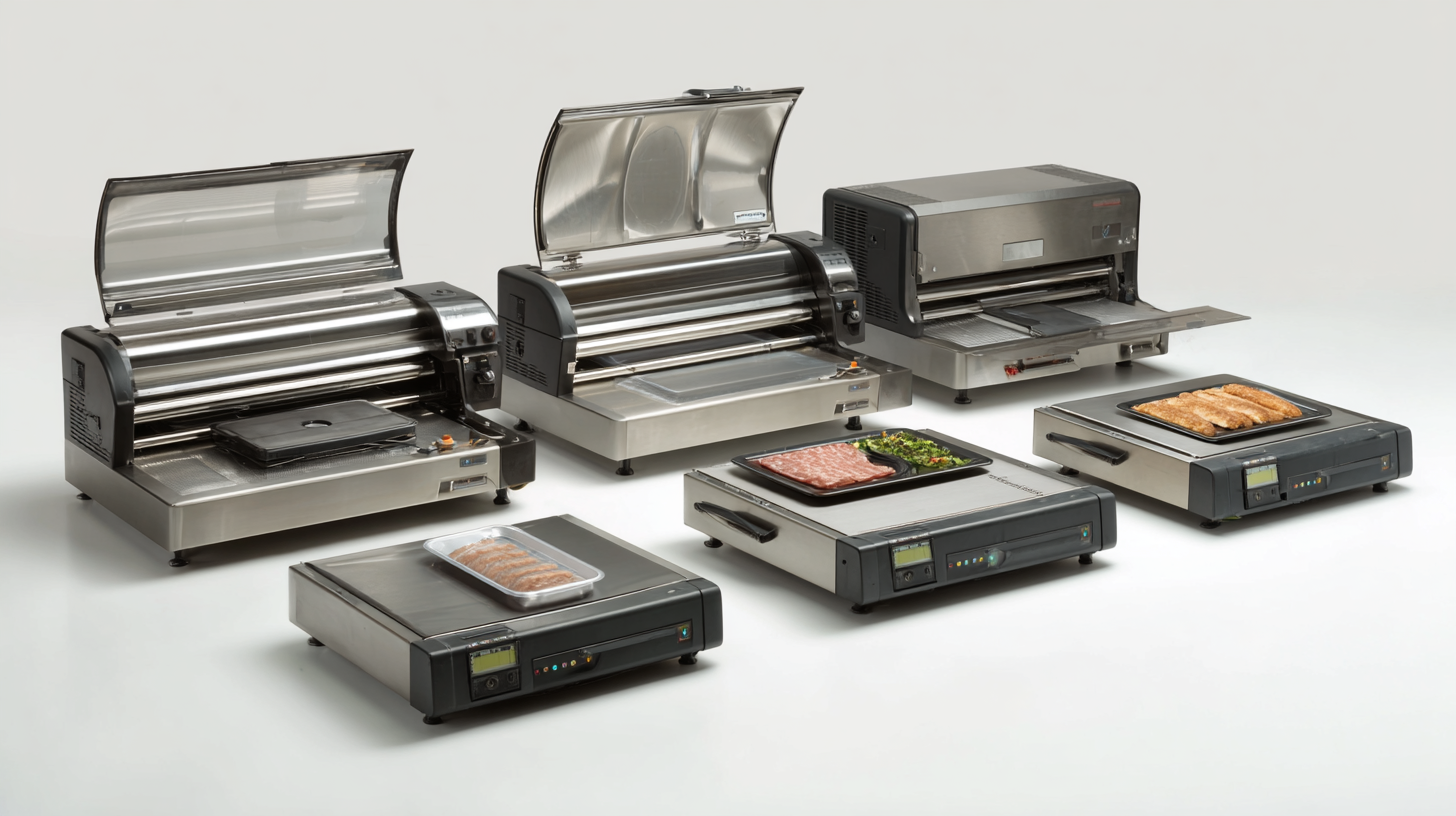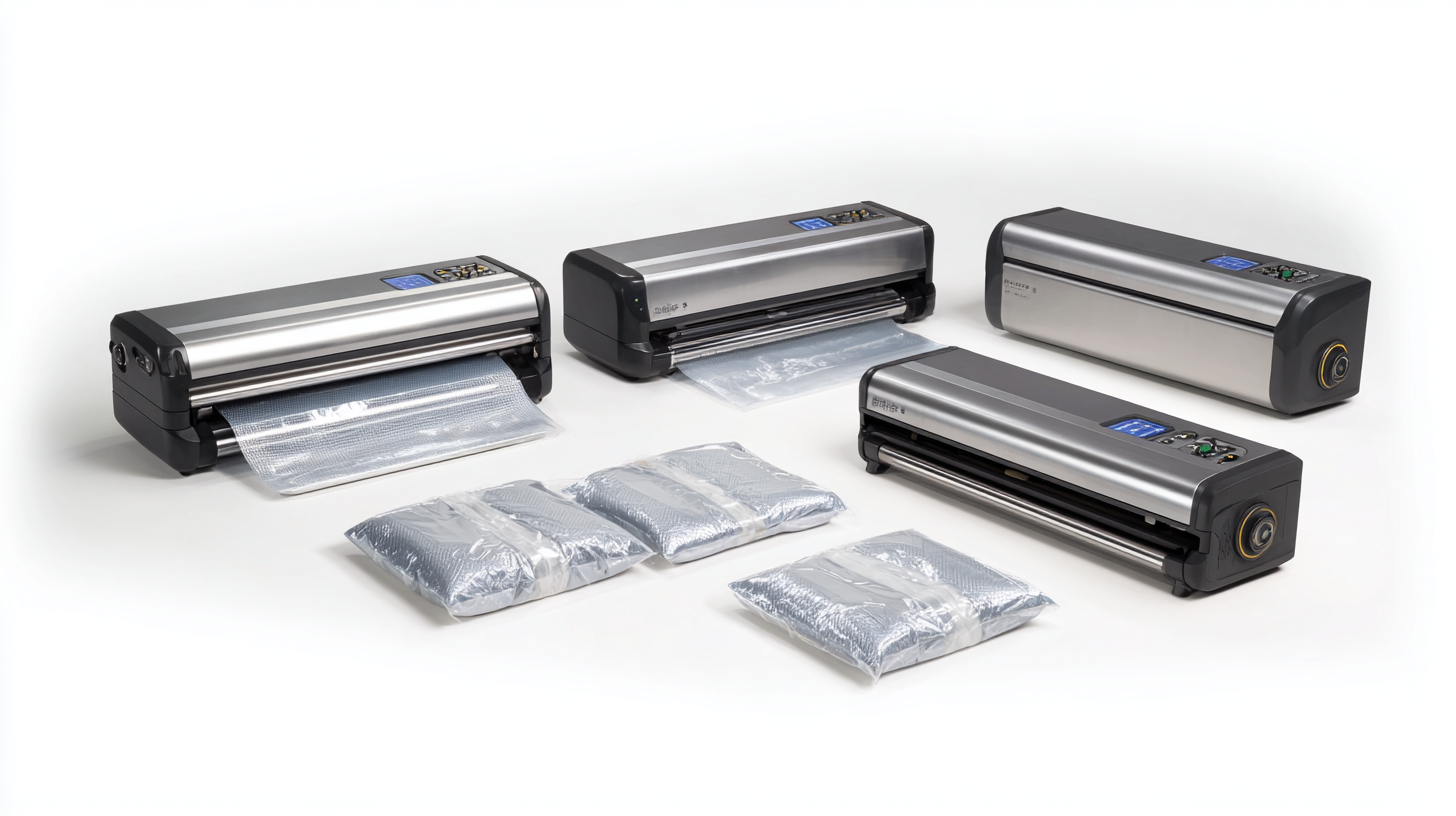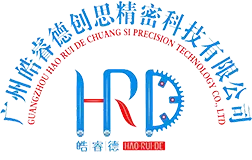Leave Your Message
 When it comes to optimizing operations and preserving the quality of products in various businesses, the importance of choosing the right Vacuum Sealing Machines cannot be overstated. These machines play a crucial role in extending the shelf life of food items, enhancing storage efficiency, and reducing waste, all of which contribute to a healthier bottom line. However, selecting the best vacuum sealing machine to meet specific business needs can be a daunting task, especially given the plethora of options available on the market. In this blog, we will explore common problems associated with different types of vacuum sealing machines and how to navigate these challenges to make an informed purchasing decision. Whether you're a small restaurant owner, a meal prep enthusiast, or a large-scale food manufacturer, understanding the nuances of vacuum sealing technology will help you choose a machine that aligns perfectly with your operational requirements.
When it comes to optimizing operations and preserving the quality of products in various businesses, the importance of choosing the right Vacuum Sealing Machines cannot be overstated. These machines play a crucial role in extending the shelf life of food items, enhancing storage efficiency, and reducing waste, all of which contribute to a healthier bottom line. However, selecting the best vacuum sealing machine to meet specific business needs can be a daunting task, especially given the plethora of options available on the market. In this blog, we will explore common problems associated with different types of vacuum sealing machines and how to navigate these challenges to make an informed purchasing decision. Whether you're a small restaurant owner, a meal prep enthusiast, or a large-scale food manufacturer, understanding the nuances of vacuum sealing technology will help you choose a machine that aligns perfectly with your operational requirements.
When selecting a vacuum sealing machine for your business, understanding the key features and technologies available is crucial. One of the primary features to consider is the sealing method; options typically include external suction, chamber vacuum sealers, and fractional vacuum sealers.
External suction machines are great for small-scale operations and are typically more affordable, while chamber vacuum sealers are ideal for high-volume businesses as they can preserve liquids and fragile items without risk of damage.
Another important aspect to evaluate is the machine's sealing strength and speed. Look for models that offer adjustable sealing levels to accommodate various products, thus providing versatility in your operations. Additionally, pay attention to the size and capacity of the machine, ensuring it aligns with your production demands.
Advanced technologies such as digital controls and automatic sealing features can streamline the process, reducing labor time and human error, which is essential for maintaining efficiency in a business setting. By focusing on these features, you can choose a vacuum sealing machine that not only meets your current needs but also adapts to future growth.
Vacuum sealing technology is witnessing significant growth across various industries, as highlighted by recent market trends. For instance, the global vacuum packaging market is expected to grow from approximately $32.91 billion in 2025 to $50.04 billion by 2032, reflecting a compound annual growth rate (CAGR) of 6.17%. This growth is largely driven by the increasing demand for food preservation and extended shelf life in the food industry. Additionally, the vacuum blister packaging market is projected to thrive due to its critical role in maintaining product freshness, with an estimated CAGR exceeding 4.2% from 2024 to 2032.
Tips for choosing the best vacuum sealing machine for your business include considering the specific needs of your industry. For example, businesses involved in the food sector may require machines that offer high efficiency and reliability, while those in the healthcare industry might prioritize models that meet stringent safety regulations. It's essential to analyze your production demands and look for vacuum sealing solutions that align with your operational goals.
Another important consideration is the durability and maintenance of the vacuum sealing machines. Given that the meat processing equipment market is expected to expand and diversify, investing in high-quality machines can lead to long-term savings and improved productivity. Always assess the warranty and support services offered by manufacturers to ensure your investment is safeguarded in case of any unexpected issues.
When considering the investment in vacuum sealing machines for your business, a cost-benefit analysis reveals promising long-term savings. According to a study by the Food Processing Institute, businesses that adopt vacuum sealing technology can reduce spoilage by up to 30%. This significant decrease in food waste not only conserves resources but also translates to substantial cost savings over time. With rising food prices and increasing concerns over sustainability, investing in efficient sealing equipment can be a transformative decision for businesses aiming to maximize profitability while minimizing environmental impact.

Additionally, the initial capital outlay for vacuum sealers must be weighed against their operational benefits. Companies can save on storage costs, as vacuum-sealed products often require less space due to their reduced size and longer shelf-life. The USDA reports that vacuum-sealed foods can last 3-5 times longer than non-sealed counterparts, thus enabling businesses to streamline inventory management and reduce the frequency of reordering. Beyond savings in waste and storage, these machines provide businesses a competitive edge in maintaining product freshness and quality, ultimately enhancing customer satisfaction. By embracing this technology, businesses are not only investing in their operational efficacy but also in a sustainable future that aligns with the growing trend of energy-efficient practices across industries.
When selecting a vacuum sealing machine for your business, one of the most critical factors to consider is the right size and capacity. Your choice should align with your specific operational needs and the volume of products you handle. Smaller businesses might benefit from compact models that take up less space and are easier to store, while larger operations may require industrial-sized machines to accommodate higher throughput without compromising efficiency.
**Tips:**
Firstly, assess your product dimensions and volumes to determine the bag size you'll need. Different machines have varying sealing capacities, so ensure the model you choose can handle your typical batch sizes. Secondly, consider the type of food or products you will seal; some machines come with specialized features such as moisture control and temperature settings that can enhance sealing effectiveness for specific items.
Tailoring the machine to your business involves not just size, but also the potential for customization. Just as businesses are increasingly relying on tailored solutions in AI and marketing to meet customer expectations, your vacuum sealing machine should also fit precisely into your workflow. Evaluate features like user interface, ease of cleaning, and the availability of replacements parts to ensure long-term viability and support.
When selecting a vacuum sealing machine for your business, it's essential to consider the nuances of top brands and models available on the market. Leading brands like FoodSaver, VacMaster, and Weston each offer unique features that cater to different business needs. For instance, FoodSaver is known for its user-friendly designs and affordability, making it a popular choice among smaller operations. In contrast, VacMaster machines often come with heavy-duty capabilities suitable for larger commercial establishments, providing superior sealing strength and durability.
Tips for choosing the right vacuum sealer include assessing your volume of sealing, the types of food you're packaging, and your budget. If your business involves high-volume food production, opt for a model with a higher sealing speed and additional functions, such as bag storage and cutter features. For smaller businesses or occasional use, a more compact and less expensive model may suffice. Don’t overlook the importance of customer reviews and warranty options to ensure long-term satisfaction and reliability with your equipment.
Additionally, consider the size and storage capacity of the machines. A bulkier model might be beneficial for extensive operations, while a portable vacuum sealer could be advantageous for those with limited space. Always test the vacuum and sealing capabilities before making a purchase to ensure it meets your specific requirements.

